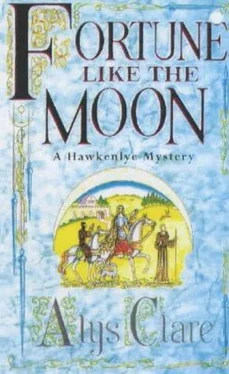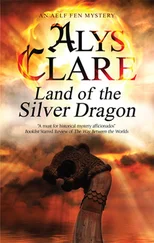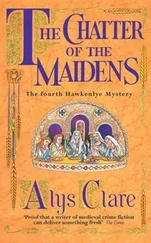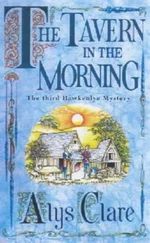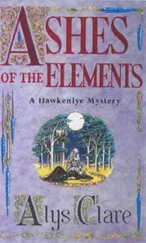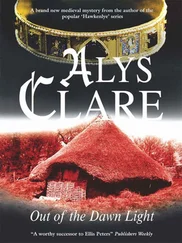Alys Clare - Fortune Like the Moon
Здесь есть возможность читать онлайн «Alys Clare - Fortune Like the Moon» весь текст электронной книги совершенно бесплатно (целиком полную версию без сокращений). В некоторых случаях можно слушать аудио, скачать через торрент в формате fb2 и присутствует краткое содержание. Год выпуска: 0101, Издательство: St. Martin, Жанр: Исторический детектив, на английском языке. Описание произведения, (предисловие) а так же отзывы посетителей доступны на портале библиотеки ЛибКат.
- Название:Fortune Like the Moon
- Автор:
- Издательство:St. Martin
- Жанр:
- Год:0101
- ISBN:нет данных
- Рейтинг книги:3 / 5. Голосов: 1
-
Избранное:Добавить в избранное
- Отзывы:
-
Ваша оценка:
- 60
- 1
- 2
- 3
- 4
- 5
Fortune Like the Moon: краткое содержание, описание и аннотация
Предлагаем к чтению аннотацию, описание, краткое содержание или предисловие (зависит от того, что написал сам автор книги «Fortune Like the Moon»). Если вы не нашли необходимую информацию о книге — напишите в комментариях, мы постараемся отыскать её.
Fortune Like the Moon — читать онлайн бесплатно полную книгу (весь текст) целиком
Ниже представлен текст книги, разбитый по страницам. Система сохранения места последней прочитанной страницы, позволяет с удобством читать онлайн бесплатно книгу «Fortune Like the Moon», без необходимости каждый раз заново искать на чём Вы остановились. Поставьте закладку, и сможете в любой момент перейти на страницу, на которой закончили чтение.
Интервал:
Закладка:
‘My son is not a great one for sitting and listening while others converse,’ Eleanor said, with only a small amount of irony. She gave Richard another of her loving glances. ‘Particularly when the matter under discussion is not to do with armaments, warhorses, ships or the journey to Outremer.’
Richard glowered briefly, then — for she was his mother, and probably the only person in the whole world before whom he reined in his quick temper — said, ‘We have in our realm of England many manors and estates which we have made available to our subjects, should they wish to pay a fair price.’ Fixing his eyes on Josse, he broke off from what sounded like a prepared speech and asked, in a far more friendly and informal tone, ‘What did you think of England, Josse? Did you like it?’
‘Sire, I only saw a small corner of it,’ Josse said, ‘and I was preoccupied with a matter of some importance, and-’
‘Yes, yes, yes, I know all that.’ Richard waved his arms as if wafting Josse’s words away. ‘But it is a beautiful country, mm? Good hunting to be had, in all those forests, not a bad climate?’
It was on the tip of Josse’s tongue to say, not a bad climate? You must have been lucky, Sire, in the few months you spent there!
But he didn’t. Despite the friendliness, Richard was still the King.
Uncertain still about what this summons meant, although he was beginning to have an idea, Josse said meekly, ‘I liked what I saw of England very much, Sire. My childhood memories served me well, and the impressions I formed on my latest visit served only to endorse the sense that it is a land in which I could happily live.’
Was that wise? If, as everyone guessed, the King was on the point of setting off on crusade, would it have been more diplomatic to plead to go with him?
But I don’t want to, Josse thought. Dear God in heaven, but I’ve had enough of war.
‘My son wishes to bestow on you a token of our gratitude, for your help in the Hawkenlye matter,’ Eleanor intervened. ‘He wishes to-’
‘Would you like an English manor, Josse?’ Richard said. ‘There are a few choice places still in my gift, even some not too many miles from Hawkenlye, even if the Clares have got most of that area tied up tighter than a cat’s-’ He broke off, shooting a look at his mother. ‘Er, a cat’s eyelids. What do you say, eh? A modest place, maybe, you being a single man, and at a reasonable price?’
‘Richard,’ his mother said quietly. ‘We agreed, did we not, that it was to be a gift? ’
Her emphasis on the word, Josse thought, suggested that it was one that was somewhat foreign to her son.
‘A little manor, then, as our gift to you, Josse,’ Richard said, beaming. Then, the benevolent expression hardening slightly, ‘Close to London, I suggest, so that you can be reached by me, when I am there, and by those in England who manage my affairs when I am not. For who knows,’ he added, throwing out a dramatic hand, ‘when another event will occur that threatens the peace of that particular corner of our kingdom?’
Aha, Josse thought. There had to be a price.
But was it a price he was prepared to pay? Would he, for the great prize of a manor — even a little manor — in King Richard’s England, be willing to become a king’s man? Someone Richard could rely on, to watch out for him, leap into action, when necessary, on his behalf?
Richard, Josse thought, was proposing to set off for the Holy Land, where he planned, no doubt, to stay and fight it out until the Holy City had been wrested back from the Infidel and was once more in Christian hands.
And God alone knew how long that was going to take.
He needs men like me, Josse thought, with sudden perception. And I, who have just discovered that I no longer feel at home in my own home, have need of what he offers me.
Of the two, my need is by far the greater.
Richard, he realised, was watching him. Waiting for his reaction. And so was Eleanor.
‘Well?’ Richard prompted. ‘Do you accept the terms, Josse d’Acquin?’
Josse met his eyes. ‘I do, Sire. Right gladly, and with heartfelt thanks.’
‘The thanks,’ Eleanor murmured, ‘are also ours.’
But Richard was calling for wine and probably did not hear.
The Third Death
Chapter Twenty
Very early one dull, foggy morning, when the season was meant to be spring but felt far more like dead of winter, the man let himself quietly out of the house and set off along the too-familiar path. He went on foot. The still, moisture-laden air seeming to cling round his lower legs as if trying to hold him back, he made his slow way back to the place where he had first broken down and cried out his grief for her.
The place he had visited and revisited so many times that he could no longer count them.
There was nobody about. Spring was late this year, and the promise of new growth was still but a hope. As if the world were being held back, halted in her year’s round, the predominant feeling in the air was of dead things. Last autumn’s leaves, choking the hedgerows and the ditches; old, dry stubble in the fields from last year’s crops. Bare branches on the trees, with still no optimistic, tentative first show of green. And, within the houses, still the comforting household fires were lit; for it remained bone-cold, the strength and power of the waxing sun so late in coming.
The earth had endured her long winter sleep. Now, it should be spring.
For him, time, cruelly, seemed to have stood still since her death. His eyes saw the outward small signs of the passage of weeks and months, but his brain didn’t accept what he saw. It was, and would ever be, the pre-dawn grey of a morning in July, when he ran in horror from what had happened to the one being in the world whom he had truly loved.
They had cared for him devotedly, the round-faced nun and the fussy old monk. The sister, looking at him with a mixture of compassion and exasperation, had treated him like a recalcitrant child, who, knowing full well what was good for him, yet refused to do it. In vain she pleaded with him to get up and go for a walk in the good strong sunshine, or to eat up this fine, strength-building food, how could he expect to grow better if he did not look after himself?
The monk, whom he had learned to call Brother Firmin, had placed his faith not in good food and hearty exercise but in the love of God. And in the holy spring water, a cool cup of which he brought to the patient every morning. And the patient had drunk it, more to please the old monk than for any belief that it would do him any good.
The Abbess herself had not forgotten him. Far from it; regularly, every day that she could spare the time, she would come to the infirmary and sit with him when her work was done, before the evening meal. Often she would just remain silently at his side, sometimes saying her rosary, sometimes not. Or, if he greeted her with any sort of animation, she would talk to him. Not in a way that demanded a response; merely a brief description of some element of her day that she thought might interest him. An encounter with a fractious visitor to the shrine; details of how a sick patient was now getting better; even, once, the peaceful death of the oldest monk in the retirement house.
And, for all that he rarely spoke a word, she did not abandon him, either.
Perhaps, he reflected, he had been a hopeless case. For none of the various treatments had been of any benefit whatsoever; he wondered, later, if he had made up his mind that they wouldn’t be, even before those kind people’s efforts had begun. In the end, because accepting their well-intentioned ministrations when he knew that nothing could make him better had started to seem a little callous, he had one day pronounced himself cured. Got up out of his bed, told them they needed it for more urgent cases. Gone with them one last time to church, where Brother Firmin, who seemed more inclined to believe in this sudden cure than did Sister Euphemia, had prayed in heartfelt thanks for God’s blessed miracle.
Читать дальшеИнтервал:
Закладка:
Похожие книги на «Fortune Like the Moon»
Представляем Вашему вниманию похожие книги на «Fortune Like the Moon» списком для выбора. Мы отобрали схожую по названию и смыслу литературу в надежде предоставить читателям больше вариантов отыскать новые, интересные, ещё непрочитанные произведения.
Обсуждение, отзывы о книге «Fortune Like the Moon» и просто собственные мнения читателей. Оставьте ваши комментарии, напишите, что Вы думаете о произведении, его смысле или главных героях. Укажите что конкретно понравилось, а что нет, и почему Вы так считаете.
